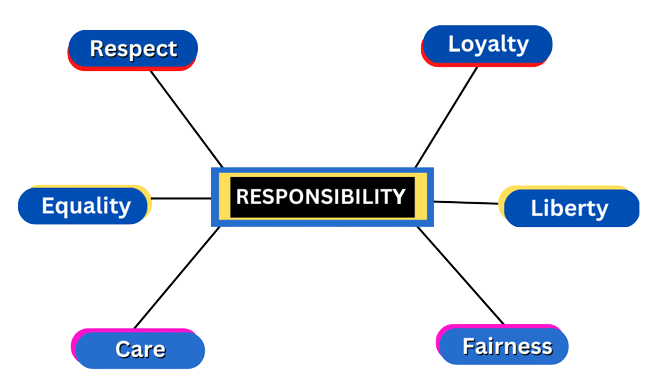3 Negotiation Techniques to Win Any Argument and Resolve Conflict, According to a Harvard University's Expert
How to Win Any Argument and Settle Non-negotiable Disputes
It is no secret that winning an argument can be a difficult feat to accomplish, but it is not impossible. Through proper preparation, knowledge of the topic, and effective negotiation tactics, you can emerge victorious from any debate.If you find yourself in a situation where the opposing party refuses to negotiate, an expert from Harvard University has provided several tips to help you navigate a nonnegotiable dispute. With these strategies, you can find a way to come to a mutually beneficial agreement or find an alternative solution.
In this blog post, we will explore and provide some tips and strategies on how to win an argument and negotiate non-negotiable issues. We will discuss the importance of having a well-thought-out strategy, and how to utilize active listening and creative problem-solving to reach an agreement. With these tips, you will be better equipped to confidently and effectively negotiate your way to a successful outcome.
Dan Shapiro (Ph.D.) is a Harvard Negotiator, founder of the Harvard International Negotiation Program, and author of Negotiating the Nonnegotiable: How to Resolve Your Most Emotionally Charged Conflicts. He is a well-known expert on negotiation and conflict resolution.
During an interview with Big Think, Shapiro uses his negotiating expertise to outline several strategies to communicate effectively during conflicts. Some of his points focus on understanding the core values of the opponent, listening intently to what the opposing side is saying, conveying that you understand your opponent's stance, and finding a common ground to begin your debate in an affiliated and peaceful approach.
In this blog post, we will explore and provide some tips and strategies on how to win an argument and negotiate non-negotiable issues. We will discuss the importance of having a well-thought-out strategy, and how to utilize active listening and creative problem-solving to reach an agreement. With these tips, you will be better equipped to confidently and effectively negotiate your way to a successful outcome.
Dan Shapiro (Ph.D.) is a Harvard Negotiator, founder of the Harvard International Negotiation Program, and author of Negotiating the Nonnegotiable: How to Resolve Your Most Emotionally Charged Conflicts. He is a well-known expert on negotiation and conflict resolution.
During an interview with Big Think, Shapiro uses his negotiating expertise to outline several strategies to communicate effectively during conflicts. Some of his points focus on understanding the core values of the opponent, listening intently to what the opposing side is saying, conveying that you understand your opponent's stance, and finding a common ground to begin your debate in an affiliated and peaceful approach.
"I feel uncomfortable around conflict, but conflict is useful. The question is how do you deal with conflict more effectively?" Shapiro said.
He proceeded that as humans everyone would constantly come across conflicts that are sometimes combatting. One of such conflicts might be related to politics, which according to Shapiro, has turned America into a "Tribal Trap"; where "Anything that the other side says, I shall not believe, I shall not give any credibility to, and I'm gonna do everything I can to prove I'm right, you're wrong."
"The problem is not with the what. What are we arguing about? The problem is with the how."
"The problem is not with the what. What are we arguing about? The problem is with the how."
Three Big Barriers to Overcome as Techniques for Effective Conversation to Win Arguments and Resolve Conflicts
1. Identity Recognition
Shapiro explained how identity issues can make people get emotional in a conflict situation. He added that before arguing, it is vital to know your core values.
"What are the core values and core beliefs that are feeling threatened inside of you as you are having that conversation with the other side? The moment your identity becomes poked in the conflict, all of a sudden, your emotion becomes more powerful. You begin to have a sense of self-pride.
To beat the identity barrier, the author said that you need to know:
- Who you are.
- what you stand for.
The moment you know who you are, the more you will stay balanced to take the debate against the other side even though your opponent threatens your core values and beliefs, as your emotion becomes 100 times more powerful, and you become more aligned.
For the identity barrier issues, Shapiro added that it is pertinent to take responsibility for certain values, beliefs, or standpoints which he elaborated on using the figure below as an illustration of certain values people should centralize their stance during conflict:
For the identity barrier issues, Shapiro added that it is pertinent to take responsibility for certain values, beliefs, or standpoints which he elaborated on using the figure below as an illustration of certain values people should centralize their stance during conflict:
"Each side wants to be appreciated but the last thing they want to do is to appreciate the other side, that's the problem". To resolve this barrier issue, he argued that while arguing, one needs to listen and understand the other person/party.
"When you are in the midst of the conflict, don't talk in the first 10 minutes." Constantly listen.
Audience Opinion on Conflict Resolution
Responding to the interview, a commenter said, "Arguments are the building blocks of the bridge to each other, and never laugh at your opponent, that's disrespectful because the definition of respect is 'acceptance on basis of equality'. So take every opponent seriously. That's all."
In conclusion, winning arguments and negotiating nonnegotiable conflicts amicably is a skill that can be learned and practiced. The Harvard Negotiator, Dan Shapiro, recommendation simply summarizes three techniques to help us do so: listening actively, communicating respectfully, and understanding the other person’s perspective.
"When you are in the midst of the conflict, don't talk in the first 10 minutes." Constantly listen.
- What are the values behind their perspective?
- What is their logic, the rationale?
- Why do they hold this perspective?
Once you know and understand their values and perspective, let them know that you understand where they are coming from and that their view makes sense. "There is nothing more in the world that we like as appreciation," Shapiro remarked.
By making your opponent realize how much you understand them, you give them a sense of belonging and the feeling that you respect their views. People respect attention and one of the reasons for a prolonged argument is that people wants to be clearly heard. They simply need recognition and appreciation to prove that their grievances are properly conveyed.
3. Affiliation Issue
This involves identifying the emotional connection between you and the other party. Now that the other party feels appreciated and you have truly understood their position, it is time to change your perspective and find a common ground between both of you. When you can note your common emotion and perspective,
- Present "My opinion versus yours" about the subject in discussion.
- Turn your adversary to your partner so that it is no longer "Me versus You", but "the two of us facing the same shared problem and values".
The above techniques, according to Shapiro, can change your relationship with others forever. It will lead to a positive revolution, a greater understanding, a greater appreciation, and a greater affiliation with how we can transform politics, our countries, and the world at large.
Audience Opinion on Conflict Resolution
Responding to the interview, a commenter said, "Arguments are the building blocks of the bridge to each other, and never laugh at your opponent, that's disrespectful because the definition of respect is 'acceptance on basis of equality'. So take every opponent seriously. That's all."
In conclusion, winning arguments and negotiating nonnegotiable conflicts amicably is a skill that can be learned and practiced. The Harvard Negotiator, Dan Shapiro, recommendation simply summarizes three techniques to help us do so: listening actively, communicating respectfully, and understanding the other person’s perspective.
Shapiro in his view discussed the above techniques under identity recognition, appreciation of each party's standpoint, and parties' affiliation to arrive at a shared goal for the good of all. If we use these three techniques, we can effectively resolve disagreements and come to a mutually beneficial outcome.
For more on conflict resolution and details of this publication, we recommend that you read Dan Shapiro's book, Negotiating the Nonnegotiable: How to Resolve Your Most Emotionally Charged Conflicts.
Copyright: Inspired Scoop Special Credit: Big Think










